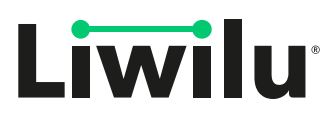Of these, most are hedgers looking to cut their risk of financial losses, as in our examples thus far. Meanwhile, speculators trade futures contracts only to profit from price fluctuations. They don’t want the underlying assets but buy or sell futures based on their predictions about future prices.
Find out more about a range of markets and test yourself with IG Academy’s online courses. You’ll either pay a spread or commission, depending on the product you’re trading with. Just like any other strategy or trading method, there are some key benefits and drawbacks that you should be aware of before you start. These points are just as valuable if you’re a novice investor or if you’re a seasoned pro.
FAQs about futures trading
Some indices – like the Germany 40 – experience higher volatility than others, and could be better suited to day traders for example. On the other hand, a futures trading plan that’s centered around fundamental analysis might generate buy or sell signals based on crop or energy inventory reports. For instance, a trader may short an oil futures contract if weekly oil inventories grow at a faster pace than analysts had expected. Of course, some traders may incorporate both technical and fundamental analysis into their futures trading plan. Most futures contracts are traded through centralized exchanges like the Chicago Board of Trade and the Chicago Mercantile Exchange (CME).
Most investors think about buying an asset anticipating that its price will go up in the future. But short-selling lets investors do the opposite — borrow money to bet an asset’s price will fall so they can buy later at a lower price. Futures are contracts to buy crypto exchange white label api trading on your platform or sell an asset at a future date at an agreed-upon price. For example, you might have a futures contract to purchase one 100,000 barrels of oil at $80 per barrel in one year. One of the main benefits of futures contracts for investors is that investors can trade significant sums of money compared to relatively small amounts invested.
The basics of futures trading
Investors can speculate or hedge on the price direction of the particular security or instrument they’re trading. A futures contract is a legal agreement to buy or sell an asset at a predetermined price at a specified time in the future. The futures price is the price that you lock in when trading a futures contract, and it is what you will be able to buy or sell an underlying market for at or before the contract’s expiry date.
So, if gold is trading for about $2,000 per ounce, each futures bitcoin flash crash knocks elon musk off rich list top spot contract is $200,000 in value. Oil is measured in barrels, which are about 42 gallons, and each futures contract is for 100 barrels. Corn is measured in bushels, which weigh approximately 56 pounds, and futures contracts are standardized to 5,000 bushels. When you hear someone use the word «futures» in the finance world, they typically mean futures contracts. A futures contract provides terms for the delivery, or cash settlement, of a specified asset, such as stocks, raw materials, or products, at a specified date in the future.
Profitable futures are taxed on a 60/40 basis, meaning that only 40% of profits are taxed with the standard income tax rate, and the rest, 60%, is taxed as long-term capital gains. All strategies have ups and downs, but you should decide which one you want to go best staking coins archives with and define it for your futures trading. In terms of the trading strategies of speculators, it is normal for them to choose one to two main sectors they specialize in and have a thorough understanding of those markets. System response and account access times may vary due to a variety of factors, including trading volumes, market conditions, system performance, and other factors. An experienced media professional, John has close to a decade of editorial experience with a background that includes key leadership roles at global newsroom outlets.
Due to leverage, which means using debt or borrowed money for trading, investors risk losing more money – profits are amplified, but so are losses. This guide will explain the basics, including what futures are, how they work, and its benefits and risks. With various futures markets to choose from, you should establish which one is most suited to your individual trading style.
- Contrarian traders hold the belief that markets tend to overreact, and by adopting positions opposite to the crowd, they can profit when the market eventually corrects itself.
- If you had current short positions on the other hand, you could go long on an index future in case the market rises, with the idea that your potential long profits would offset your short losses.
- Futures are derivative contracts that let you speculate on the future price of some asset or commodity, or to let you hedge against existing positions.
- While each side is taking a risk that the price they pay now is close to the actual price at the settlement month, each party insures against the risk of a wide swing against them in oil prices.
Futures contract trading example
Large corporations can use futures as a hedge against the underlying asset’s price movements, where the aim is to prevent losses from rising prices. In most cases, these companies need large amounts of specific commodities in their production or manufacturing process to make their products or to operate. However, futures trading does come with higher risks and isn’t well-suited for beginner investors.
Proprietary Trading Firms
A commodity is a physical product whose value is determined primarily by the forces of supply and demand. This includes grains (corn, wheat, etc.), energy (such as natural gas or crude oil), and precious metals like gold or silver. Suppose a couple owns a farm and expects to harvest 5,000 bushels of wheat in six months.


